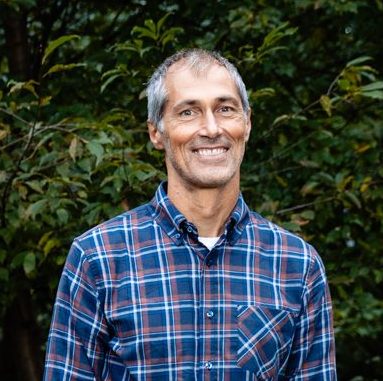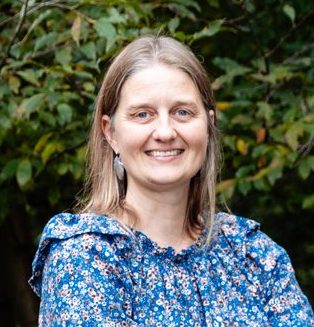This is a time of personal, academic, and worldly discovery. These children begin to know themselves; their confidence reaches new heights and they realize how much there is to learn.
In all of our classrooms, we provide a safe and nurturing environment where children make friends, build confidence, show compassion while expressing creativity.
Environment
Outdoors: Where Nature Inspires Learning
Our Outdoor School is pivotal to the success of our middle school students, fostering both personal growth and academic development. By immersing in the natural world, students witness the dynamic changes in our environment and understand the evolving human connection to nature through hands-on, scientific exploration.
Values
As children progress through our Outdoor Middle School, their work demands greater independence in both thought processes and personal responsibilities. More emphasis is placed on developing abstract thinking skills. Teachers create activities in which children form an opinion and defend it in written and oral presentations, see the cause and effect of a historical event, and predict an outcome for a similar situation today. When children move on to our high school or those in the are, they understand at a core level how to pursue their curiosity about life, and they have the confidence to do so. They have developed a love for learning and the self-motivation to succeed. Empowered by their experiences as fully vested members of the School community, our 8th-grade graduates become active members of their high school community and of the world at large.
Growing Independence
These children waiver between independence and a sense of maturity and a desire to remain young and cared for. The youngest children in this group are often the “doers” and frequently take on more than they can handle while the oldest exude confidence while facing more internal question and self-doubt. Who their friends are and what they think is increasingly important. They are often excited about what they are learning as well as, for some, developing anxiety. They feel both thrilled and overwhelmed as they grow older.
A Safe Place
Children thrive in social environments that create safe and healthy relationships and provide a strong sense of community. Daily planning meetings, working in small groups, organizing and lending a hand during classroom and community jobs, managing the school store, and serving as a delegate on the Student Judiciary, require these children to hone their organizational and systems thinking skills and make a sincere effort to be their very best selves.
Curriculum
Literacy
These children understand what it takes to be a good reader. They are increasingly able to see a story unfold and predict events and moments. They often discuss books and ask questions about what they’re reading. They summarize and use graphs to organize their thoughts about the books they read. As their reading skills evolve, they use root words, context clues, and word endings to figure out new words. They are increasingly independent during reading and writing.
Teachers introduce many literary genres and a variety of print forms, such as myths and legends, fantasy, adventure, historical fiction, and journalism in books magazines, web sites, blogs, and newspapers. Students relate characters and other story elements to their own lives and empathize with the characters most like them. They gather information and increasingly sort daft from fiction.
During writing, these students learn organizational methods that help them prepare for more complex writing assignments. They learn to plan their work. They write reports, creative fiction, and personal narratives. They explore primary sources to gather information on a topic and organize this information, creating maps, webs, and Venn diagrams. They synthesize their findings into paragraphs, essays, projects, and presentations. They each develop a unique writing style and attain skills to help them edit their work and take more responsibility for the writing process, including revising, editing, and proofreading.
Mathematics
Math becomes much more challenging during these grades. Students work with larger whole numbers, and fractions and decimal numbers. They solve and explain addition, subtraction, multiplication, and division problems and problems about factors and multipliers. They work with remainders while dividing and make connections between decimals, fractions, and percentages. They learn to multiply and divide fractions. They do more math work on paper and in their heads, while still using physical manipulatives when called for.
Science
Science investigations become much more detailed in this class. They explore increasingly complex natural systems, such as relationships between the sun, Earth, and moon, weather concepts, and living systems like the food chain. They learn about landmasses and bodies of water, and how to identify them on a globe or map. They begin to investigate and classify different states of matter, such as solids, liquids, and gases, and observe the behavior of sound and light. They understand the solar system, weather, photosynthesis, digestion, and the Earth’s resources, and how people use and affect those resources. They might experiment with simple chemical reactions.
These students are frequently asked to make smart guesses before observing and experimenting to gather data and draw informed conclusions. In time, they apply the complex math and science skills they have acquired to their observations.
Global Studies
In Global Studies, which frequently goes hand in hand with Science, children develop a multifaceted understanding of history. They continue their studies in geography and are introduced to archeology, sociology, philosophy, economics, religion, politics. They come to understand what people believed and how they conducted their lives.
Investigations into these areas are skillfully guided by the teachers based on the interests of the children themselves, which is made evident through their questions and deep dive into research. The process of learning from firsthand experiences remains at the heart of the Middle Program. For example, to culminate a study students might take a trip to a historical site or museum, talk to a person with a firsthand account, or work with a historian.
Specialty And Classroom Teachers Also Offer:
- Art
- Computer Science
- Dramatic Play
- Music
- Physical Education
- Sign Language
- Technology
- Tinkering in our STEAM Lab
Our outdoor school students solve complex problems with numbers, words, and complex ideas.
Meet the Team
-

Larry Benner
Teacher/Researcher – Upper School
View ProfileHaving grown up on the Jersey Shore, Larry Benner was excited to move back to the area and weave his years of experience teaching into classrooms at Voyagers'. -

Kadi Cook, M.Ed.
Teacher/Researcher - Upper School
View ProfileKadi joined Voyagers’ in 2008, coming from a rich background in the arts. She integrates many teaching styles and draws from various teaching philosophies, with a strong focus on the Reggio Emilia philosophy and Constructivism. -

Ashley Shea
Teacher/Researcher - Lower School
View ProfileAshley’s passion for teaching began as a substitute at a Head Start preschool program after high school. She has been with Voyagers’ for 7 years, bringing a wealth of experience and dedication to her role.